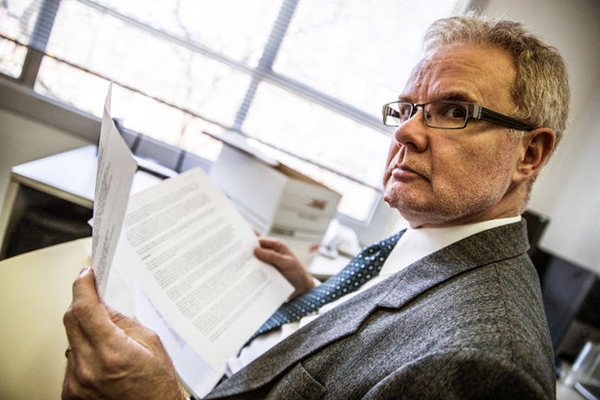The Supreme Court of Canada has decided to hear an appeal of a British Columbia law that restricts what people can say during elections.
"It's a big deal," said Vincent Gogolek, the executive director of the BC Freedom of Information and Privacy Association, reacting to the Nov. 30 ruling. "This was our last chance to get this before the court."
The case goes back to 2013 when FIPA asked the B.C. Supreme Court to declare unconstitutional parts of the provincial Election Act that require groups or individuals to register with Elections BC if they plan to say or distribute anything that might be considered election advertising during an election period.
Lawyers Sean Hearn and Alison Latimer, acting pro bono, are representing FIPA in the case.
The law defines election advertising as "the transmission to the public by any means... of an advertising message that promotes or opposes, directly or indirectly, a registered political party or the election of a candidate." It specifically includes "an advertising message that takes a position on an issue with which a registered political party or candidate is associated."
Other jurisdictions, including Canada and Alberta, don't require people to register until they spend $500 or $1,000 on election advertising, but B.C.'s law has no lower limit. Gogolek has said that means during a B.C. election, individuals who put political messages on handwritten signs in a window, on a T-shirt or bumper sticker could be subject to a $10,000 fine and a year in jail.
Law 'unduly muzzles expression': judge
The problem came up during byelections in 2008 when organizers with a small Vancouver group, Renters at Risk, were threatened with jail time or a $10,000 fine for things they had posted on their website that Elections BC considered to be election advertising.
A 2010 Canadian Centre for Policy Alternatives report found the B.C. laws had a "chill effect" on advocacy groups during the 2009 B.C. election, and The Tyee reported a similar "chilling" effect during the 2013 campaign.
FIPA lost the decision at the B.C. Supreme Court in 2014, and the B.C. Court of Appeal upheld the ruling in a split 2-1 decision in April.
In her dissent in the appeal court ruling, Justice Mary Saunders said the provision is overly broad and "unduly muzzles expression of individuals who, without great expenditure of funds, act alone." She added, "It smothers the small and independent voices whose participation in public discourse should be encouraged and celebrated, not deterred."
"We had a fairly vigorous dissent from Madame Justice Saunders," Gogolek said. "It really comes down to can this be justified, and we don't think it can."
The chief electoral officer has twice recommended making the change, in reports released in 2010 and 2014.
Simpler to register, NDP says
Gogolek said he's amazed the government has chosen to fight the case rather than simply fixing the law. "This kind of thing shouldn't be in our election laws," he said. "This would have been so much better if it had been dealt with in the legislature, by the legislature, the way it should have."
The Tyee requested an interview with Attorney General Suzanne Anton. A ministry spokesperson instead sent an email saying that it was FIPA, not the province, that has pushed the case to the Supreme Court of Canada. "For comment on why this is being pursued, we would encourage you to speak with the requesting party."
NDP justice critic Leonard Krog said that setting a spending threshold before advertisers have to register would create its own problems, as there would likely be arguments about what should count towards the limit.
"We believe all third parties who want to advertise should be registered," Krog said. "It's probably simpler just to register. Both on a simplicity level and a transparency level."
Krog said he thinks it is highly unlikely that a court would uphold Election Act charges against someone wearing a political T-shirt or displaying a handwritten sign. "I'm not convinced that someone with a funny sign in their window is actually going to be subject to legal sanction," he said.
Gogolek said he expects the Supreme Court will hear the case within the year and he's hopeful the law will be fixed before the next general election, which is scheduled for May 2017. ![]()
Read more: Rights + Justice, BC Politics
















Tyee Commenting Guidelines
Comments that violate guidelines risk being deleted, and violations may result in a temporary or permanent user ban. Maintain the spirit of good conversation to stay in the discussion.
*Please note The Tyee is not a forum for spreading misinformation about COVID-19, denying its existence or minimizing its risk to public health.
Do:
Do not: